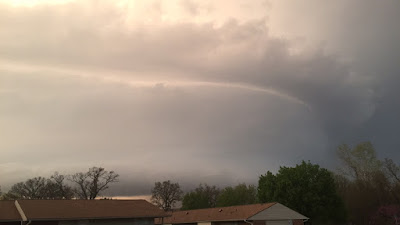Wikipedia Trail: Myth to Exorcism
Myth Wikipedia
I was not sure where to start this week's trail, so I just typed in the name of the course to see where it would take me. The first sentence of the page describes a myth as playing a "fundamental role in a society". This description interested me because I had never thought of myths in that way. After reading through different categories of myths and the ways that they have been used throughout history, though, it is clear that mythology has an important role in most everyone's life. For example, people who follow Christianity follow tales from the Bible (whether a person considers it factual or not), or Native American tribes pass down tales like origin stories for generations.
Christian mythology Wikipedia
As a person who grew up, and still considers themself, Christian, this page interested me because although I have heard and read stories from the Bible, I was not sure whether there were mythological references I had never noticed. Of course a person can research the symbolism and references throughout the Bible, but that would take years, so the section of this page that caught my attention discussed witches. Theologian Martin Delrio describes what is called Disquisitiones magicae very negatively, claiming that the "witches" make offerings using human body parts, purify a figure in fire with water, and dance while singing obscene songs.
Christian demonology Wikipedia
The witch section of the previous page brought me to this one which intrigued me because I grew up terrified of anything supernatural. The topic of ghosts and demons still freak me out, but I think hearing stories of them are so interesting. A thought that I previously held was that all Christian denominations believed in demons or some derivation of them, but according to this page that is not the case. It is deeply rooted in Catholicism (my denomination), but actually not so common in some others. In denominations that do believe in demons, there are many different views on how they came to exist and even what they look like, which goes to show the impact culture can have on such stories.
Exorcism Wikipedia
Being interested in supernatural stories, I chose this page because I have only heard about "Catholic exorcisms" and did not realize that exorcism existed in religions such as Hinduism, Buddhism, and Islam. This page describes how exorcisms are carried out among several religions and what they mean to the followers. For example, Buddhism has an "Exorcising-Ghost day" where temples and monasteries host religious dance ceremonies and families clean and decorate their houses then have a special soup. On the other hand, Christians have a specific exorcist who prays and reads from a Bible to drive a demon out of a person in the name of God or Jesus Christ.
I was not sure where to start this week's trail, so I just typed in the name of the course to see where it would take me. The first sentence of the page describes a myth as playing a "fundamental role in a society". This description interested me because I had never thought of myths in that way. After reading through different categories of myths and the ways that they have been used throughout history, though, it is clear that mythology has an important role in most everyone's life. For example, people who follow Christianity follow tales from the Bible (whether a person considers it factual or not), or Native American tribes pass down tales like origin stories for generations.
Christian mythology Wikipedia
As a person who grew up, and still considers themself, Christian, this page interested me because although I have heard and read stories from the Bible, I was not sure whether there were mythological references I had never noticed. Of course a person can research the symbolism and references throughout the Bible, but that would take years, so the section of this page that caught my attention discussed witches. Theologian Martin Delrio describes what is called Disquisitiones magicae very negatively, claiming that the "witches" make offerings using human body parts, purify a figure in fire with water, and dance while singing obscene songs.
Christian demonology Wikipedia
The witch section of the previous page brought me to this one which intrigued me because I grew up terrified of anything supernatural. The topic of ghosts and demons still freak me out, but I think hearing stories of them are so interesting. A thought that I previously held was that all Christian denominations believed in demons or some derivation of them, but according to this page that is not the case. It is deeply rooted in Catholicism (my denomination), but actually not so common in some others. In denominations that do believe in demons, there are many different views on how they came to exist and even what they look like, which goes to show the impact culture can have on such stories.
Exorcism Wikipedia
Being interested in supernatural stories, I chose this page because I have only heard about "Catholic exorcisms" and did not realize that exorcism existed in religions such as Hinduism, Buddhism, and Islam. This page describes how exorcisms are carried out among several religions and what they mean to the followers. For example, Buddhism has an "Exorcising-Ghost day" where temples and monasteries host religious dance ceremonies and families clean and decorate their houses then have a special soup. On the other hand, Christians have a specific exorcist who prays and reads from a Bible to drive a demon out of a person in the name of God or Jesus Christ.


Comments
Post a Comment